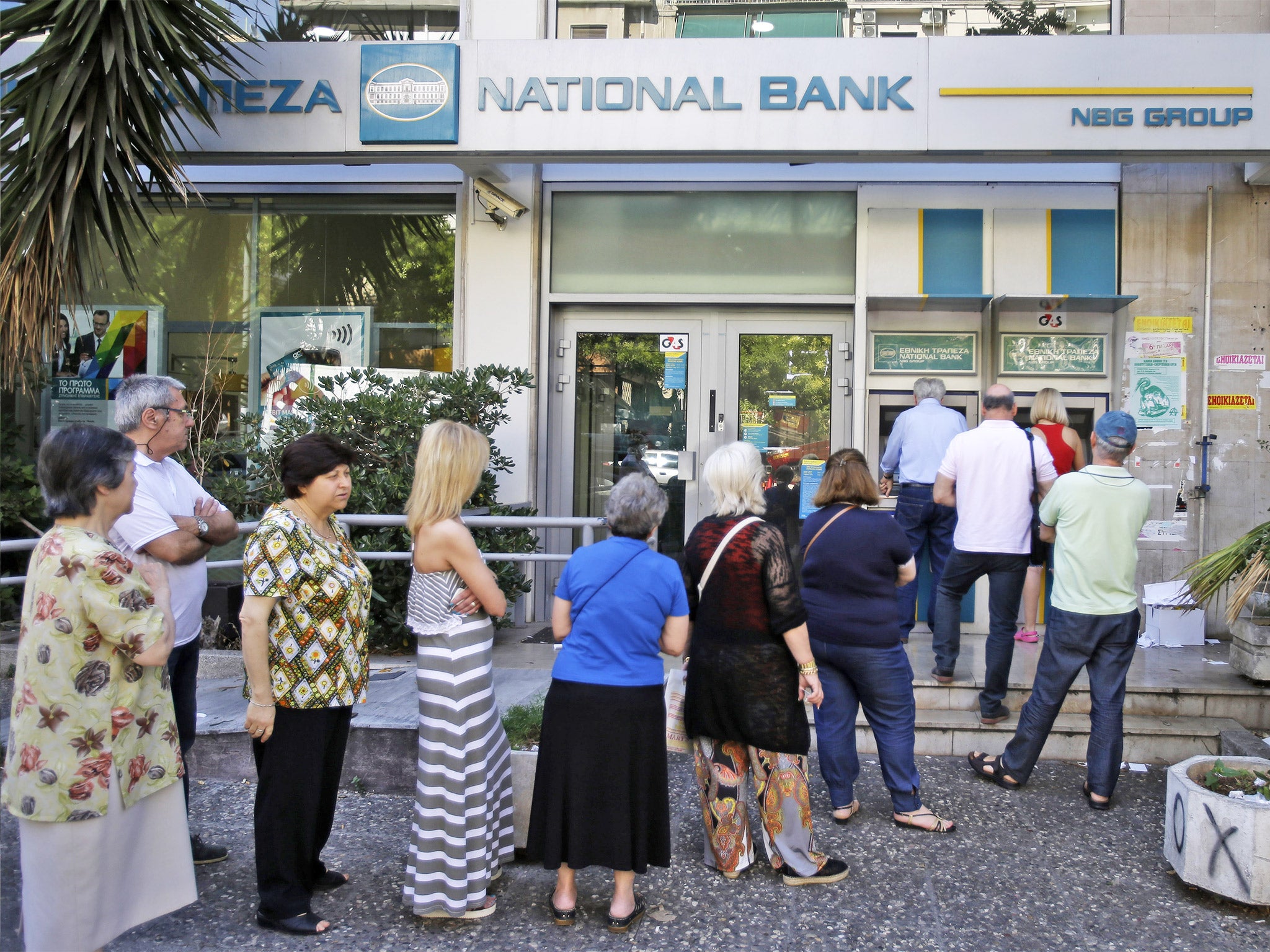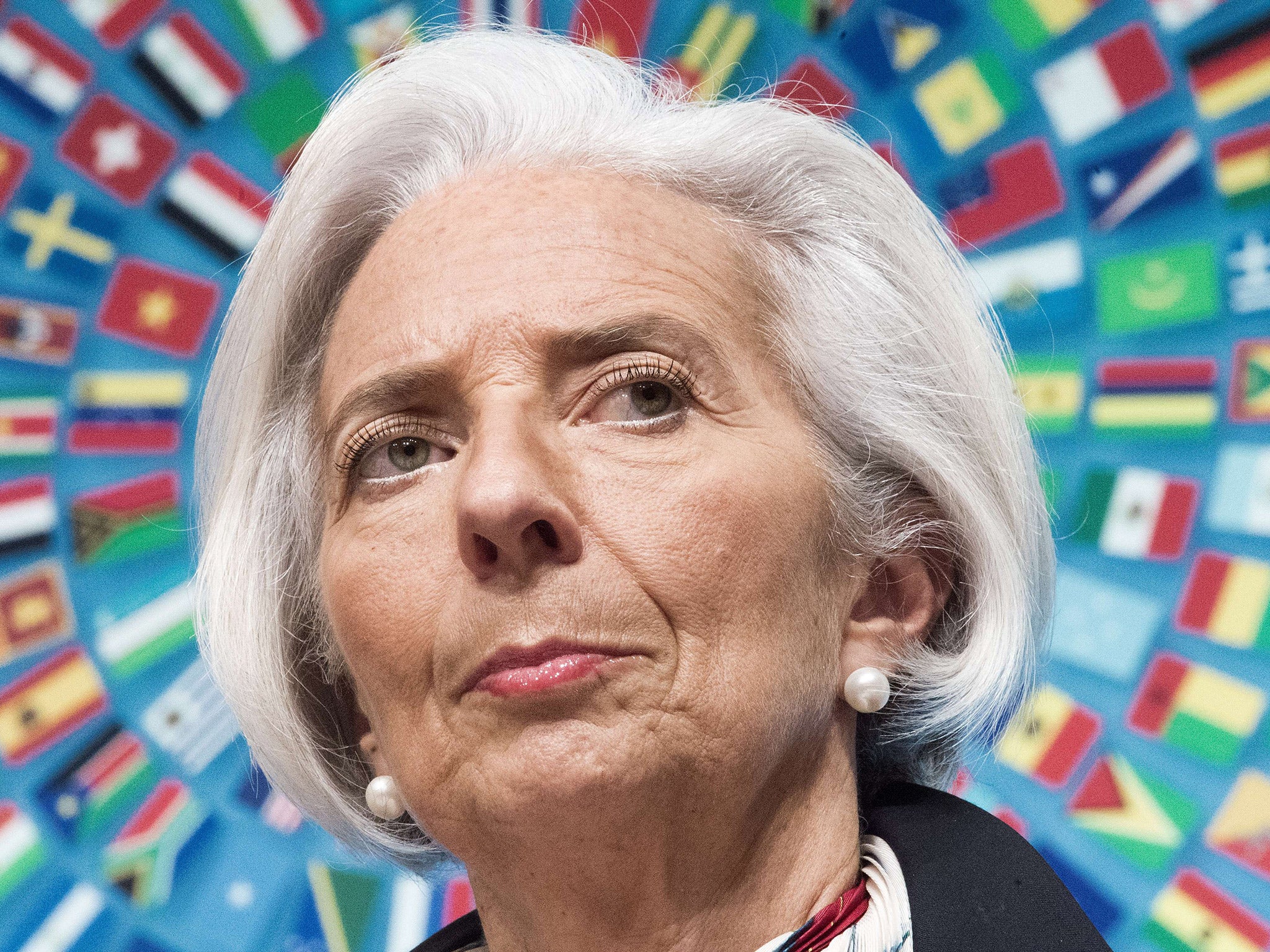Your support helps us to tell the story
From reproductive rights to climate change to Big Tech, The Independent is on the ground when the story is developing. Whether it's investigating the financials of Elon Musk's pro-Trump PAC or producing our latest documentary, 'The A Word', which shines a light on the American women fighting for reproductive rights, we know how important it is to parse out the facts from the messaging.
At such a critical moment in US history, we need reporters on the ground. Your donation allows us to keep sending journalists to speak to both sides of the story.
The Independent is trusted by Americans across the entire political spectrum. And unlike many other quality news outlets, we choose not to lock Americans out of our reporting and analysis with paywalls. We believe quality journalism should be available to everyone, paid for by those who can afford it.
Your support makes all the difference.How did it come to this? How did Greece end up joining Somalia, Sudan and Zimbabwe on a list of countries officially in “arrears” to the International Monetary Fund?
It will be a humiliating day for Greece to find itself numbered among such failed states which have, in effect, stiffed the other governments of the world. But make no mistake: this is also a humiliating day for the IMF itself.
The Greek default is a culmination of a catastrophic chain of misjudgements by the Washington-based Fund, stretching all the way back to May 2010, when it was called in by the eurozone authorities to participate in a financial rescue for Greece.
The Fund is supposed to offer emergency liquidity funding to states on the condition that they implement measures to put themselves on a sustainable path. This means enacting serious structural economic reforms and writing off excess sovereign debts.
Yet Mr Strauss-Kahn acquiesced in the insistence of the Europeans that Greece’s sovereign debts should not be restructured and that the country should be made to pay-off its liabilities in full.
The eurocrats argued that with other struggling eurozone countries (such as Portugal, Ireland, Italy and Spain) under scrutiny from the markets, a Greek write-off would trigger mass panic. That was bad enough of course, since it meant the IMF was effectively busy propping up the broader eurozone, rather than thinking about Greece’s best interests.
But what made the episode a true scandal was that European leaders were also mindful that German and French banks held sizeable chunks of Greece’s sovereign debt on their books. A write-down would have forced those banks to record big losses. They might have even needed a public bailout.
It’s perhaps no surprise that Germany’s Angela Merkel and France’s Nicolas Sarkozy wanted to avoid that. But a technocratic institution such as the IMF should never have gone along with it.

The IMF’s second terrible failure over Greece was in underestimating the negative economic impact of the public-sector budget cuts it joined with Brussels in imposing on Athens. In 2010, the Fund predicted Greece would experience a sharp and relatively short recession from austerity. But in fact, the country’s output fell steadily for the next four years and unemployment surged to a quarter of the workforce. Greece suffered a re-run of America’s Great Depression. It has been one of the biggest economic policy disasters since the Second World War.
The Fund’s leadership has never fully faced up to these blunders. And this silence has helped to destroy trust between Europe and Greece. It has enabled a poisonous myth to take hold in Europe that an ungrateful Greece population has benefited immensely from the generosity of neighbours. In reality the vast bulk of the €240bn bailout cash has flowed right out of the door again to pay external creditors and to recapitalise Greek banks. Just 10 per cent of that sum was spent on Greek public sector workers and pensioners.
The IMF has also clearly not learned its lesson on the economic impact of austerity either. The Greek economy is back in recession again but the Fund is still demanding public pension cuts and VAT increases. While these reforms are sound in normal times, if implemented now they would merely inflict more damage on the Greek economy, further crush its GDP and make the national debt burden still higher.
It is perfectly true that Greece dug its own grave. Successive governments in Athens fiddled their accounts, overspent grotesquely, and turned a blind eye to rampant tax evasion. But none of that excuses the incompetence and cowardice of the IMF over the past five years.
Countries that go into arrears with the IMF must clear them within two years or risk being expelled as members. One must hope this will not be the next sorry chapter in Greece’s humiliation. But it will certainly be many decades before the IMF’s reputation is cleared of its shameful role in the Greek catastrophe.

Join our commenting forum
Join thought-provoking conversations, follow other Independent readers and see their replies
Comments